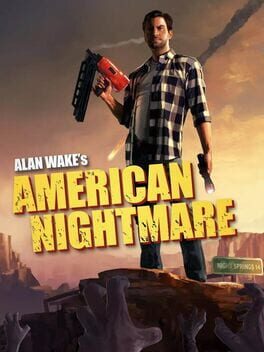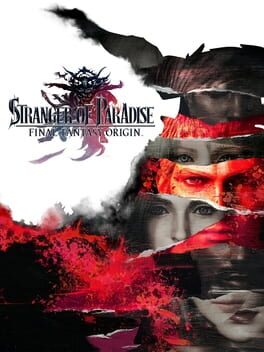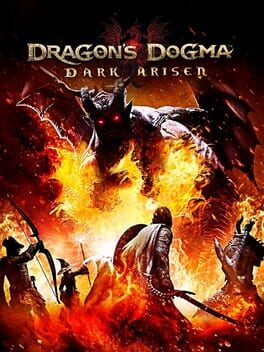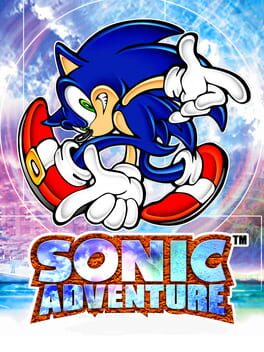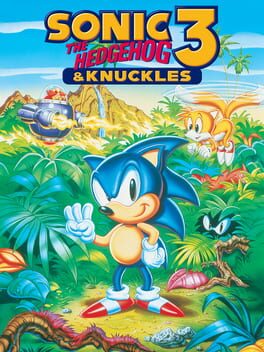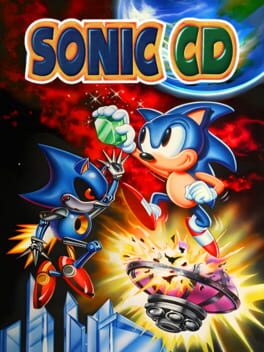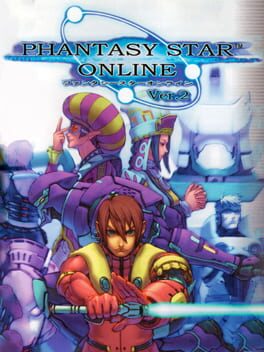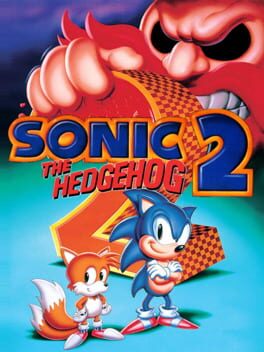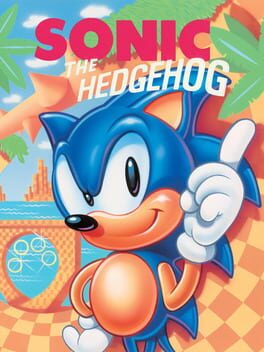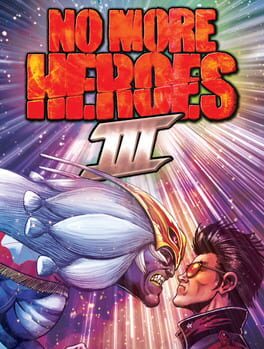MORTEAOSJOGOS
CHRONICLES OF THE SUNKEN WRITER: GAIDEN
If Remedy only learned what Alan Wake was when they finished it, all subsequent small content (both DLCs and American Nightmare) are them stretching their muscles and working on the things they learned. It's the proper "first try" at Alan Wake.
While the DLCs are the stronger attempts, American Nightmare feels more like a side-story. In my mind it has the same energy of a tie-in comic book or something like that, it doesn't really expand any idea and mostly finds a new story to tell in the established concepts.
On itself, it's a kind of fun continuation of the duality in Wake fighting himself, only instead of himself as an artist it's himself as a person. His demons manifesting in real life, not on his work.
It feels surprisingly incomplete as well, but it's a fun few hours.
If Remedy only learned what Alan Wake was when they finished it, all subsequent small content (both DLCs and American Nightmare) are them stretching their muscles and working on the things they learned. It's the proper "first try" at Alan Wake.
While the DLCs are the stronger attempts, American Nightmare feels more like a side-story. In my mind it has the same energy of a tie-in comic book or something like that, it doesn't really expand any idea and mostly finds a new story to tell in the established concepts.
On itself, it's a kind of fun continuation of the duality in Wake fighting himself, only instead of himself as an artist it's himself as a person. His demons manifesting in real life, not on his work.
It feels surprisingly incomplete as well, but it's a fun few hours.
2010
This review contains spoilers
CHRONICLES OF THE SUNKEN WRITER #1: DEPARTURE
Creating anything is a personal struggle, be it solo or with a team. Any person in that process is their own protagonist and antagonist, with the result of their battle, their truce, being what we usually call art.
Remedy's Alan Wake exists in that struggle. On a basic level, it's a story about a writer's-blocked hacky author who gets taken by an all-consuming darkness that manifests through the mind, who feeds on ideas. It makes his unfinished story come back to kill him, until he finds a way to end it.
Deeper in those waters is the story of a 5-year development hell, stressed out developers, artists struggling through deadlines, trying to make it all work. Before it all clicked, they must have felt the story was trying to kill them too.
All of this is due to Departure. It's the most important word in this story. The game is not just a result of struggling with writer's block, it's the result of wanting to do something different. Of killing the hard-boiled cop that made you famous and then having nothing to show for years. Facing that horrifying blank canvas, unlike anything you've worked before, and trying to make something there.
That's where you can find beauty in Alan Wake's flaws. It's the best story on writer's block ever written because a lot of it IS the block, it's the old maps from an open world game being chopped into structured levels, it's the lighting they wasted so much time creating being used as a main mechanic, it's about going through this incomplete thing and seeing it come together, against all odds, discovering what it was supposed to be. Art-making as the art itself.
There's a reason Remedy's output has only gotten better and more distinct over time, and it all comes back to this. With Payne they discovered they can make art, with Wake they found their voice as artists.
Lastly, Alan couldn't defeat the darkness. He's trapped by it and forced to write and rewrite for eternity, a perfect metaphor for writer's block, but it ends with this slight glimmer of light.
To me, it makes sense that Wake has appeared in every subsequent Remedy game in one way or another. They wanted to make a sequel but for many reasons couldn't, so while they left those 5 years of development hell and went onto bigger things, Alan is still stuck there, doomed to be an unfinished idea.
All they want to do is save him.
Creating anything is a personal struggle, be it solo or with a team. Any person in that process is their own protagonist and antagonist, with the result of their battle, their truce, being what we usually call art.
Remedy's Alan Wake exists in that struggle. On a basic level, it's a story about a writer's-blocked hacky author who gets taken by an all-consuming darkness that manifests through the mind, who feeds on ideas. It makes his unfinished story come back to kill him, until he finds a way to end it.
Deeper in those waters is the story of a 5-year development hell, stressed out developers, artists struggling through deadlines, trying to make it all work. Before it all clicked, they must have felt the story was trying to kill them too.
All of this is due to Departure. It's the most important word in this story. The game is not just a result of struggling with writer's block, it's the result of wanting to do something different. Of killing the hard-boiled cop that made you famous and then having nothing to show for years. Facing that horrifying blank canvas, unlike anything you've worked before, and trying to make something there.
That's where you can find beauty in Alan Wake's flaws. It's the best story on writer's block ever written because a lot of it IS the block, it's the old maps from an open world game being chopped into structured levels, it's the lighting they wasted so much time creating being used as a main mechanic, it's about going through this incomplete thing and seeing it come together, against all odds, discovering what it was supposed to be. Art-making as the art itself.
There's a reason Remedy's output has only gotten better and more distinct over time, and it all comes back to this. With Payne they discovered they can make art, with Wake they found their voice as artists.
Lastly, Alan couldn't defeat the darkness. He's trapped by it and forced to write and rewrite for eternity, a perfect metaphor for writer's block, but it ends with this slight glimmer of light.
To me, it makes sense that Wake has appeared in every subsequent Remedy game in one way or another. They wanted to make a sequel but for many reasons couldn't, so while they left those 5 years of development hell and went onto bigger things, Alan is still stuck there, doomed to be an unfinished idea.
All they want to do is save him.
𝘖𝘕𝘊𝘌 𝘜𝘗𝘖𝘕 𝘈 𝘛𝘐𝘔𝘌 𝘐𝘕 𝘛𝘏𝘌 𝘓𝘈𝘕𝘋 𝘖𝘍 𝘔𝘌𝘓𝘔𝘖𝘕𝘋,
𝘛𝘏𝘌 𝘚𝘗𝘓𝘜𝘕𝘋𝘌𝘙 𝘖𝘍 𝘝𝘌𝘎𝘌𝘛𝘈𝘛𝘐𝘖𝘕 𝘋𝘌𝘊𝘈𝘠𝘌𝘋 (𝘊𝘖𝘔𝘌 𝘖𝘕!)
𝘐𝘛 𝘞𝘈𝘚 𝘗𝘙𝘖𝘗𝘏𝘌𝘊𝘐𝘡𝘌𝘋 𝘛𝘏𝘈𝘛 𝘍𝘖𝘜𝘙 𝘚𝘛𝘜𝘕𝘕𝘐𝘕𝘎 𝘓𝘐𝘎𝘏𝘛 𝘞𝘈𝘙𝘙𝘐𝘖𝘙𝘚 𝘞𝘖𝘜𝘓𝘋 𝘊𝘖𝘔𝘌 𝘈𝘕𝘋 𝘚𝘈𝘝𝘌 𝘛𝘏𝘌 𝘋𝘈𝘠 (𝘞𝘏𝘈-𝘞𝘏𝘈-𝘞𝘏𝘈𝘛)
𝘈𝘙𝘙𝘐𝘝𝘐𝘕𝘎 𝘐𝘕 𝘊𝘖𝘙𝘕𝘌𝘓𝘐𝘈 𝘈𝘔𝘐𝘋𝘚𝘛 𝘈𝘓𝘓 𝘛𝘏𝘌 𝘋𝘌𝘓𝘐𝘙𝘐𝘈, 𝘍𝘖𝘜𝘙 𝘔𝘍𝘚 𝘌𝘔𝘌𝘙𝘎𝘌𝘋 (𝘏𝘌𝘓𝘓 𝘠𝘌𝘈𝘏!)
𝘛𝘖 𝘛𝘌𝘈𝘊𝘏 𝘈 𝘝𝘈𝘓𝘜𝘌𝘋 𝘓𝘌𝘚𝘚𝘖𝘕, 𝘉𝘌𝘛 𝘠𝘖𝘜'𝘓𝘓 𝘊𝘖𝘜𝘕𝘛 𝘠𝘖𝘜𝘙 𝘉𝘓𝘌𝘚𝘚𝘐𝘕𝘎𝘚 𝘈𝘛 𝘛𝘏𝘌 𝘉𝘌𝘈𝘛𝘐𝘕𝘎 𝘛𝘏𝘈𝘛'𝘚 𝘈𝘉𝘖𝘜𝘛 𝘛𝘖 𝘖𝘊𝘊𝘜𝘙
𝘏𝘌𝘙𝘌 𝘞𝘌 𝘎𝘖:
The Final Fantasy series (or FIFA as I'm now going to call them) is sooooooo big. It's this big cultural institution, this gaming juggernaut, AND as this important pillar in the history of making games, so it always felt unnaproachable to me, the dude who never played a single one but knows a lot about them by just growing up around people who talk about games.
It's the reason I'm always anxious to get into it. Where do I start? From the very first one? Just the greatest hits? How do I begin to properly understand a franchise so important to my favourite medium?
When Stranger of Paradise was announced and people were making fun of the cutscenes, I decided this would be the one. For no real reason, it just seemed different enough and I thought it would be funny to pop my proverbial cherry with the weirdo spin-off with Fred Durst in it. I didn't expect it to be something I would love so much.
I'm not gonna fool around here: it's all about the story. The busted-up, duct-taped, janky, smart, emotional, wonderful tale this game wants to tell.
SoP always feels like it's a small production, in-between mindlessly crawling dungeons you only have a couple of "sets", a couple of characters, and they're all standing in one place and spouting lines, it feels very "high-school theater" in a way. Which I wouldn't say it's charming, but the impressive thing is how much it wants to do with the little it has. Even when it gets cinematic and fancy, you feel like it's the important stuff they wanted to waste resources into, totally different from how the rest of the game tells its story.
It's the most ambitious high-school play ever, it wants to do so much!
Ever thought about how crazy the plot of FIFA 1 is? With the time loop, the weird amnesiac heroes (funnily enough a detail that's always forgotten), goofy pirates and witches, it's a wild little world that always seemed fun when I heard about it. It feels like a mesh of different fantasy stories and it can only hide that weirdness because it's a fun little 8-bit RPG.
SoP invests in that craziness and goes beyond the confines of suspending disbelief for fantasy, going instead straight into messaging and themes. The world doesn't make sense, but it's not that type of story.
I think most people just didn't realize it, but the craziness of FIFA 1 allows you to tell a story like SoP, you just need a little extra push with multiverse-stuff and past lives (which are ALL extensions of the time loop and the amnesia stuff that's already there).
It just fells like such a genius little way to build an anniversary game that simultaneously works as a remake/retelling/prequel of the first, it's doing 4 jobs with just one hand and it's so unique!!! You would rarely find an opportunity like this anywhere else!!
I mean, come on, the dungeons are references to all FIFA games!! The final twist turns "Amnesiac warriors trying to get their memories back and fighting God" into a creation myth for the entire Final Fantasy series!! It's insane!! Nothing has ever done this!!
Stranger of Paradise is the little game that could. Everyone joked about it, few believed in it, but it's my dark horse. I think it's genuinely super special and unlike anything out there. The gameplay, which I avoided talking about, is also nothing to scoff at. It's got depth, it feels good, it gets you thinking, it's fun!
I can definitely say that this isn't for everyone, it's definitely not perfect, but if you go with an open mind, I think it'll be worth your time in the end.
And as for me, I'm finally ready to get into these games. Now that I think about it, SoP ends on a call to action that just inspires you to play Final Fantasy, so maybe I should get on that.
𝘛𝘏𝘌 𝘚𝘗𝘓𝘜𝘕𝘋𝘌𝘙 𝘖𝘍 𝘝𝘌𝘎𝘌𝘛𝘈𝘛𝘐𝘖𝘕 𝘋𝘌𝘊𝘈𝘠𝘌𝘋 (𝘊𝘖𝘔𝘌 𝘖𝘕!)
𝘐𝘛 𝘞𝘈𝘚 𝘗𝘙𝘖𝘗𝘏𝘌𝘊𝘐𝘡𝘌𝘋 𝘛𝘏𝘈𝘛 𝘍𝘖𝘜𝘙 𝘚𝘛𝘜𝘕𝘕𝘐𝘕𝘎 𝘓𝘐𝘎𝘏𝘛 𝘞𝘈𝘙𝘙𝘐𝘖𝘙𝘚 𝘞𝘖𝘜𝘓𝘋 𝘊𝘖𝘔𝘌 𝘈𝘕𝘋 𝘚𝘈𝘝𝘌 𝘛𝘏𝘌 𝘋𝘈𝘠 (𝘞𝘏𝘈-𝘞𝘏𝘈-𝘞𝘏𝘈𝘛)
𝘈𝘙𝘙𝘐𝘝𝘐𝘕𝘎 𝘐𝘕 𝘊𝘖𝘙𝘕𝘌𝘓𝘐𝘈 𝘈𝘔𝘐𝘋𝘚𝘛 𝘈𝘓𝘓 𝘛𝘏𝘌 𝘋𝘌𝘓𝘐𝘙𝘐𝘈, 𝘍𝘖𝘜𝘙 𝘔𝘍𝘚 𝘌𝘔𝘌𝘙𝘎𝘌𝘋 (𝘏𝘌𝘓𝘓 𝘠𝘌𝘈𝘏!)
𝘛𝘖 𝘛𝘌𝘈𝘊𝘏 𝘈 𝘝𝘈𝘓𝘜𝘌𝘋 𝘓𝘌𝘚𝘚𝘖𝘕, 𝘉𝘌𝘛 𝘠𝘖𝘜'𝘓𝘓 𝘊𝘖𝘜𝘕𝘛 𝘠𝘖𝘜𝘙 𝘉𝘓𝘌𝘚𝘚𝘐𝘕𝘎𝘚 𝘈𝘛 𝘛𝘏𝘌 𝘉𝘌𝘈𝘛𝘐𝘕𝘎 𝘛𝘏𝘈𝘛'𝘚 𝘈𝘉𝘖𝘜𝘛 𝘛𝘖 𝘖𝘊𝘊𝘜𝘙
𝘏𝘌𝘙𝘌 𝘞𝘌 𝘎𝘖:
The Final Fantasy series (or FIFA as I'm now going to call them) is sooooooo big. It's this big cultural institution, this gaming juggernaut, AND as this important pillar in the history of making games, so it always felt unnaproachable to me, the dude who never played a single one but knows a lot about them by just growing up around people who talk about games.
It's the reason I'm always anxious to get into it. Where do I start? From the very first one? Just the greatest hits? How do I begin to properly understand a franchise so important to my favourite medium?
When Stranger of Paradise was announced and people were making fun of the cutscenes, I decided this would be the one. For no real reason, it just seemed different enough and I thought it would be funny to pop my proverbial cherry with the weirdo spin-off with Fred Durst in it. I didn't expect it to be something I would love so much.
I'm not gonna fool around here: it's all about the story. The busted-up, duct-taped, janky, smart, emotional, wonderful tale this game wants to tell.
SoP always feels like it's a small production, in-between mindlessly crawling dungeons you only have a couple of "sets", a couple of characters, and they're all standing in one place and spouting lines, it feels very "high-school theater" in a way. Which I wouldn't say it's charming, but the impressive thing is how much it wants to do with the little it has. Even when it gets cinematic and fancy, you feel like it's the important stuff they wanted to waste resources into, totally different from how the rest of the game tells its story.
It's the most ambitious high-school play ever, it wants to do so much!
Ever thought about how crazy the plot of FIFA 1 is? With the time loop, the weird amnesiac heroes (funnily enough a detail that's always forgotten), goofy pirates and witches, it's a wild little world that always seemed fun when I heard about it. It feels like a mesh of different fantasy stories and it can only hide that weirdness because it's a fun little 8-bit RPG.
SoP invests in that craziness and goes beyond the confines of suspending disbelief for fantasy, going instead straight into messaging and themes. The world doesn't make sense, but it's not that type of story.
I think most people just didn't realize it, but the craziness of FIFA 1 allows you to tell a story like SoP, you just need a little extra push with multiverse-stuff and past lives (which are ALL extensions of the time loop and the amnesia stuff that's already there).
It just fells like such a genius little way to build an anniversary game that simultaneously works as a remake/retelling/prequel of the first, it's doing 4 jobs with just one hand and it's so unique!!! You would rarely find an opportunity like this anywhere else!!
I mean, come on, the dungeons are references to all FIFA games!! The final twist turns "Amnesiac warriors trying to get their memories back and fighting God" into a creation myth for the entire Final Fantasy series!! It's insane!! Nothing has ever done this!!
Stranger of Paradise is the little game that could. Everyone joked about it, few believed in it, but it's my dark horse. I think it's genuinely super special and unlike anything out there. The gameplay, which I avoided talking about, is also nothing to scoff at. It's got depth, it feels good, it gets you thinking, it's fun!
I can definitely say that this isn't for everyone, it's definitely not perfect, but if you go with an open mind, I think it'll be worth your time in the end.
And as for me, I'm finally ready to get into these games. Now that I think about it, SoP ends on a call to action that just inspires you to play Final Fantasy, so maybe I should get on that.
2022
"Terra Roxa de Sangue: A Guerra de Porecatu" (Blood-Purpled Soil: The Porecatu War) by Joaquim Carvalho da Silva, is a historical-fiction novel detailing the real-life tensions and fights between squatters, land grabbers and farmers over supposedly-devolved lands in the state of Paraná, some 80 years ago. That land is today the small town of Porecatu, Brazil, (population 10k and falling) where I grew up.
I first heard of the book (and the banger sentence "blood-purpled soil") as an early teen, from my history teacher. This was an interesting point in my development as a person, not only did I learn that there was some war in the founding of my town, but I learned that, yeah, places don't just come into being, they have reasons to be here. I had experienced my first real interaction with history, not the worldly type that explains the big picture, but the local one, the one that surrounds my personal life. I was living on grounds where blood was spilled, how would that change things for me?
Surprisingly, nothing at all. I asked authority figures (older relatives) and they didn't knew much, they knew there was some fighting and that some of the families involved were still in the town. But that was it. 70 years is a long time, and big things can be lost in the smallest places, it seemed.
I promised myself to read that book one day, never did, and just went on living.
That spilled blood became a hazy memory, a one-liner to vaguely explain why things were that way at home, but nothing real in any meaningful way. Turns out I hadn't interacted with history at all, what is the point of knowing events but not people? Of knowing titles and dates but not seeing a single picture of the dead names in the gravestones? History really is "big things get lost", and we can only hope it's not too late when someone tries to find them.
Josh Sawyer's Pentiment brought me back here. Under promises of a fun Medieval Whodunnit, I found a sensitive, emotional, human story about the effects of history in the personal pains and hardships we're expected to go through, how we write it and are written by it.
Inviting us to visit a small town for two-or-so generations, we are first asked to meet and love the inhabitants of Kiersau, then we're asked to go through horrible things with them, and finally, we're asked to tell their history, as best we can. The last act of Pentiment (and where the game really begins) is what elevates it to something special that will be talked about forever. After giving you blood to spill, it finds an even more stressfull task: trying to faithfully represent the histories of a place, and all the people in it.
Writing history is straightening a whirlwind, it's an abstract thing based on real, material events, but it's the collected lives of all of us, all the joy and pain and love and hate and births and deaths and lost hopes and dreams achieved, all of it, how could it not be hard to do? It's arguably the hardest thing to do.
Pentiment's last masterstroke is living for the future. A story truly obsessed with the past, with what happened and how it shaped people in the present, can only be meaningful if it understands that there's more coming, forever. By just going through the bits of life, you're writing history, consequences bleed consequences until the end of humanity.
People will always keep going, they have to, come peace or war, so it's important that they try to remember who kept going before them, in the most truthful and open way possible. Remembering things before us is a powerful thing, it can be used as means of control, but when left to be itself, with honesty and vulnerability, it can have the role it was always intended to have, which is saying that "despite all things, maybe you're going to be fine". If things were better then, there's hope of going back to how they were, if they're better now, then it is possible to improve things, you can have hope.
And it does this softly and sensitively, with the feeling of say, a young kid leaving their small town to try and go into the big world, with all the anxiousness and excitement that brings.
I have found that book (and some others detailing the early years of my town), and will now go through them. I think it's the least I can do for all the people who have lived here. It might not change much in me, but they deserve to be remembered nonetheless. Someone has to remember them.
Thanks for reading all this mush.
I first heard of the book (and the banger sentence "blood-purpled soil") as an early teen, from my history teacher. This was an interesting point in my development as a person, not only did I learn that there was some war in the founding of my town, but I learned that, yeah, places don't just come into being, they have reasons to be here. I had experienced my first real interaction with history, not the worldly type that explains the big picture, but the local one, the one that surrounds my personal life. I was living on grounds where blood was spilled, how would that change things for me?
Surprisingly, nothing at all. I asked authority figures (older relatives) and they didn't knew much, they knew there was some fighting and that some of the families involved were still in the town. But that was it. 70 years is a long time, and big things can be lost in the smallest places, it seemed.
I promised myself to read that book one day, never did, and just went on living.
That spilled blood became a hazy memory, a one-liner to vaguely explain why things were that way at home, but nothing real in any meaningful way. Turns out I hadn't interacted with history at all, what is the point of knowing events but not people? Of knowing titles and dates but not seeing a single picture of the dead names in the gravestones? History really is "big things get lost", and we can only hope it's not too late when someone tries to find them.
Josh Sawyer's Pentiment brought me back here. Under promises of a fun Medieval Whodunnit, I found a sensitive, emotional, human story about the effects of history in the personal pains and hardships we're expected to go through, how we write it and are written by it.
Inviting us to visit a small town for two-or-so generations, we are first asked to meet and love the inhabitants of Kiersau, then we're asked to go through horrible things with them, and finally, we're asked to tell their history, as best we can. The last act of Pentiment (and where the game really begins) is what elevates it to something special that will be talked about forever. After giving you blood to spill, it finds an even more stressfull task: trying to faithfully represent the histories of a place, and all the people in it.
Writing history is straightening a whirlwind, it's an abstract thing based on real, material events, but it's the collected lives of all of us, all the joy and pain and love and hate and births and deaths and lost hopes and dreams achieved, all of it, how could it not be hard to do? It's arguably the hardest thing to do.
Pentiment's last masterstroke is living for the future. A story truly obsessed with the past, with what happened and how it shaped people in the present, can only be meaningful if it understands that there's more coming, forever. By just going through the bits of life, you're writing history, consequences bleed consequences until the end of humanity.
People will always keep going, they have to, come peace or war, so it's important that they try to remember who kept going before them, in the most truthful and open way possible. Remembering things before us is a powerful thing, it can be used as means of control, but when left to be itself, with honesty and vulnerability, it can have the role it was always intended to have, which is saying that "despite all things, maybe you're going to be fine". If things were better then, there's hope of going back to how they were, if they're better now, then it is possible to improve things, you can have hope.
And it does this softly and sensitively, with the feeling of say, a young kid leaving their small town to try and go into the big world, with all the anxiousness and excitement that brings.
I have found that book (and some others detailing the early years of my town), and will now go through them. I think it's the least I can do for all the people who have lived here. It might not change much in me, but they deserve to be remembered nonetheless. Someone has to remember them.
Thanks for reading all this mush.
"Cleansed by the surf, a body washes ashore on a deserted beach. Nameless, this soul awakens, eyes gleaming with the will to live, and for all things worth living for."
THE INDOMITABLE HUMAN SPIRIT COLLIDES WITH THE INDIFFERENT, CHAOTIC UNIVERSE. AGAIN. AS IT DID COUNTLESS TIMES BEFORE. AS IT WILL DO FOREVER, UNTIL THE LAST SOUL IS TAKEN BY ETERNITY'S STREAM.
Dragon's Dogma is the most obtuse game it can be. It strips away most of the things you take for granted in an open-world RPG and seriously asks you to do simple things like manage your own save, create your own fast-travel points, just sorta figure out quests as you go or look it up somewhere else. It's tight. But most importantly, just a bit hostile.
Your first journey in DD will be unexpected. You never really get the sense you know what you're doing. You're just following along quests, fighting, tripping into traps, there's an air of tension after the prologue that takes a while to settle, and most of the time you'll be wrestling with the game's mechanics, incomplete quirks and bizarre choices.
That feeling of exploring an actual dangerous world as a mostly helpless, lost person makes it all feel really, y'know, adventurous. More of an adventure that most games like DD try to provide. And it sets up a different feeling for when you eventually DO know what you're doing, like you conquered and discovered and grew. It's sick.
After all that, the last surprise this game has to throw at you is its ending. A wild final-hour where it unmasks itself from a simple tropey western fantasy to a story that's at its heart philosophical. Answering questions of a soul in the cycle of creation, questioning the will of gods, putting humanity's place in this dangerous world as helpless people, who still do things anyway. It's classic stuff.
The final quest (killing God, then doing it again) is unlike anything I've ever seen, and it's so raw I can't even put to just one paragrah so I won't even try. But the will is the origin of the soul, and DD just wants to show that. Be it in trying to get a handle of a janky broken game, playing it again even if you know almost everything, etc. We do things, it's how we manifest into being. So I think it's cute that the final moment of the game is manifesting that will into a literal NPC. Even the digital empty person inside your videogame, doomed to repeat a cycle of following players braving a world, can be given the fire of life. You pass that on.
Like the Gods before you, your place in the cycle is creating willing people, for what, we cannot know. That is not our part in the story, that is for them to discover and venture through.
THE INDOMITABLE HUMAN SPIRIT COLLIDES WITH THE INDIFFERENT, CHAOTIC UNIVERSE. AGAIN. AS IT DID COUNTLESS TIMES BEFORE. AS IT WILL DO FOREVER, UNTIL THE LAST SOUL IS TAKEN BY ETERNITY'S STREAM.
Dragon's Dogma is the most obtuse game it can be. It strips away most of the things you take for granted in an open-world RPG and seriously asks you to do simple things like manage your own save, create your own fast-travel points, just sorta figure out quests as you go or look it up somewhere else. It's tight. But most importantly, just a bit hostile.
Your first journey in DD will be unexpected. You never really get the sense you know what you're doing. You're just following along quests, fighting, tripping into traps, there's an air of tension after the prologue that takes a while to settle, and most of the time you'll be wrestling with the game's mechanics, incomplete quirks and bizarre choices.
That feeling of exploring an actual dangerous world as a mostly helpless, lost person makes it all feel really, y'know, adventurous. More of an adventure that most games like DD try to provide. And it sets up a different feeling for when you eventually DO know what you're doing, like you conquered and discovered and grew. It's sick.
After all that, the last surprise this game has to throw at you is its ending. A wild final-hour where it unmasks itself from a simple tropey western fantasy to a story that's at its heart philosophical. Answering questions of a soul in the cycle of creation, questioning the will of gods, putting humanity's place in this dangerous world as helpless people, who still do things anyway. It's classic stuff.
The final quest (killing God, then doing it again) is unlike anything I've ever seen, and it's so raw I can't even put to just one paragrah so I won't even try. But the will is the origin of the soul, and DD just wants to show that. Be it in trying to get a handle of a janky broken game, playing it again even if you know almost everything, etc. We do things, it's how we manifest into being. So I think it's cute that the final moment of the game is manifesting that will into a literal NPC. Even the digital empty person inside your videogame, doomed to repeat a cycle of following players braving a world, can be given the fire of life. You pass that on.
Like the Gods before you, your place in the cycle is creating willing people, for what, we cannot know. That is not our part in the story, that is for them to discover and venture through.
1998
A charming virtual child's toybox. Some of the toys are broken and fragile so they can snap easily, please don't push them too far.
While the broken state of this game is something you have to deal with when discussing it, I'm on the camp that thinks Sonic Adventure is magical when it all works. It's just that it's easy for the ilusion to break.
Y'know when you were a kid and one of your figures broke like, a leg or something so you got your dad to duct tape it back? Now whenever you played with it, it kinda looked out of place, and you had to be careful because the leg could detach itself again and all that? But when it the first shock wore out you didn't really care? Yeah, Sonic Adventure is kinda like that.
Which isn't really a great endorsement, no one buys pre-damaged toys. But I just liked the feeling of carefully playing with a broken thing, after a while it just became natural and I could enjoy the great things this game has to offer like the crazy bonkers levels, varied playstyles, godly soundtrack and surprisingly interesting story structure.
I think this can only work because Sonic Adventure's heart is pure, like a child's. A game so broken can only be loved because it's so devoid of cynicism and is so earnest inside.
I'm not sure many adults can get much out of this game, when it was released and nowadays. But I'm sure the kids loved it.
While the broken state of this game is something you have to deal with when discussing it, I'm on the camp that thinks Sonic Adventure is magical when it all works. It's just that it's easy for the ilusion to break.
Y'know when you were a kid and one of your figures broke like, a leg or something so you got your dad to duct tape it back? Now whenever you played with it, it kinda looked out of place, and you had to be careful because the leg could detach itself again and all that? But when it the first shock wore out you didn't really care? Yeah, Sonic Adventure is kinda like that.
Which isn't really a great endorsement, no one buys pre-damaged toys. But I just liked the feeling of carefully playing with a broken thing, after a while it just became natural and I could enjoy the great things this game has to offer like the crazy bonkers levels, varied playstyles, godly soundtrack and surprisingly interesting story structure.
I think this can only work because Sonic Adventure's heart is pure, like a child's. A game so broken can only be loved because it's so devoid of cynicism and is so earnest inside.
I'm not sure many adults can get much out of this game, when it was released and nowadays. But I'm sure the kids loved it.
This game is what dreams are made of.
I've been playing this on-and-off for so long now and with so many gaps between play sessions that my scattered thoughts can never be captured into something coherent, so I'll just say what I said at the top, I think it sums it up how it is in my mind.
I went through some rough months (which might have extended into a rough year) and it was really nice to have that hedgehog and his pals there whenever I had the time. Thanks, Sonic.
(Carnival Night Zone fuckin' sucks tho)
I've been playing this on-and-off for so long now and with so many gaps between play sessions that my scattered thoughts can never be captured into something coherent, so I'll just say what I said at the top, I think it sums it up how it is in my mind.
I went through some rough months (which might have extended into a rough year) and it was really nice to have that hedgehog and his pals there whenever I had the time. Thanks, Sonic.
(Carnival Night Zone fuckin' sucks tho)
1993
Went in kinda having troubles adjusting but it just became a bomb-ass game the more it went along. I started thinking it was missing something, and it definitely was, but I found new things along the way.
Stages just filled with varied one-time ideas, the best Eggman fights (THAT THEME DUDE), a surprisingly ambitious time travel mechanic that makes Sonic CD not the type of game you just play once, it's just different takes and wild ideas from a different team.
Even storywise, Sonic's fight changes from saving the animals to saving the plantlife on a dying planet wrecked by technology, it's peak "whatever the hell Sonic is meant to be". That fight is even baked into the mechanics as you can travel to a seemingly inevitable future where Eggman has already won. Sonic CD is working in the apocalyptic level, it's not about saving fauna and stopping pantomime Jeff Bezos, it's about preventing a future where the planet is beyond saving. In a way it's as close as environmentalist a game like this can get (of course in here the day is saved by time travel and the usual Sonic stuff, but still).
Rebelling against an incompetent egghead in power, storming into his technopocalypse base, destroying it and just peacing out, outracing a phony copy of yourself and impressing your girl, saving the planet from disaster. Isn't that what Sonic should be all about?
Stages just filled with varied one-time ideas, the best Eggman fights (THAT THEME DUDE), a surprisingly ambitious time travel mechanic that makes Sonic CD not the type of game you just play once, it's just different takes and wild ideas from a different team.
Even storywise, Sonic's fight changes from saving the animals to saving the plantlife on a dying planet wrecked by technology, it's peak "whatever the hell Sonic is meant to be". That fight is even baked into the mechanics as you can travel to a seemingly inevitable future where Eggman has already won. Sonic CD is working in the apocalyptic level, it's not about saving fauna and stopping pantomime Jeff Bezos, it's about preventing a future where the planet is beyond saving. In a way it's as close as environmentalist a game like this can get (of course in here the day is saved by time travel and the usual Sonic stuff, but still).
Rebelling against an incompetent egghead in power, storming into his technopocalypse base, destroying it and just peacing out, outracing a phony copy of yourself and impressing your girl, saving the planet from disaster. Isn't that what Sonic should be all about?
What started as a mild curiosity for the first console MMO became a little month-long stay. Phantasy Star Online (or Offline for me) is really simple, almost barebones, but it's pretty addictive. In almost every way it's less of an MMO and more of what we now call the Live Service Game, with the focus on repetition and satisfying grind we associate so much with Destiny and Warframe and the rest.
This is prolly as far as I can go without a team, but I'm totally considering picking it back up and trying a private server.
This is prolly as far as I can go without a team, but I'm totally considering picking it back up and trying a private server.
1992
LADIES AND GENTLEMEN THE GAME THAT WAS MEANT TO BE.
The funnest sprawliest stages, the slappiest music, the cheekiest player traps, just the best feeling. The game even handles frustration/fun incredibly well and can feel so rewarding at times.
It's a shame it takes a nosedive at around the final levels and the boss gautlent is so frustrating it almost makes you hate everything.
But I don't hate it. I replayed some stages right after a frustrating finish just to be sure, and I love it very much.
It's not perfect, it can definitely feel rough around the edges, and I think they still have stuff to improve on the Sonic formula. But it's one of those games where it's just impossible to hate it, it's just too charming and too fun.
If this had been Sonic 1, SEGA would still be in the console business tbh
The funnest sprawliest stages, the slappiest music, the cheekiest player traps, just the best feeling. The game even handles frustration/fun incredibly well and can feel so rewarding at times.
It's a shame it takes a nosedive at around the final levels and the boss gautlent is so frustrating it almost makes you hate everything.
But I don't hate it. I replayed some stages right after a frustrating finish just to be sure, and I love it very much.
It's not perfect, it can definitely feel rough around the edges, and I think they still have stuff to improve on the Sonic formula. But it's one of those games where it's just impossible to hate it, it's just too charming and too fun.
If this had been Sonic 1, SEGA would still be in the console business tbh
1991
Like a weird mix between premature birth and a really frantic brainstorming session. Sonic 1 feels half baked and unfinished, it's nearly there, but not enough even as a first attempt.
It unfortunately creates a game that isn't that fun to play most of the time, even when you learn to play it "properly".
But you can feel they had something here, I think they just didn't really know what it was yet. They needed some time for their baby to grow.
Music is great tho.
(making Scrap Brain 3 just Labyrinth Zone 4 is so nefarious and sadistic it's genius, it's like the perfect in-character trap for Eggman to set)
It unfortunately creates a game that isn't that fun to play most of the time, even when you learn to play it "properly".
But you can feel they had something here, I think they just didn't really know what it was yet. They needed some time for their baby to grow.
Music is great tho.
(making Scrap Brain 3 just Labyrinth Zone 4 is so nefarious and sadistic it's genius, it's like the perfect in-character trap for Eggman to set)
2021
In the moment-to-moment gameplay this is the best the series has ever been, but I think it lacks the moody atmospheric spirit of the Metroid games. The level design is fantastic, but the world design is boring, that type of stuff.
This ends up being a second run on a modern Metroid game instead of the proper sequel to Super that we've been promised, which is fine because the formula is still good. But I do think it's time to freshen it up when the inevitable Metroid 6 rolls around.
MercurySteam has proven itself, twice now. They can do a kickass Metroid game, we believe it. Now they just have to do it.
(Samus speaking Chozo was the "I am the FBI" of videogames, just pure soul-lifting fanservice. The closest thing to a religious experience I'll ever have tbh)
This ends up being a second run on a modern Metroid game instead of the proper sequel to Super that we've been promised, which is fine because the formula is still good. But I do think it's time to freshen it up when the inevitable Metroid 6 rolls around.
MercurySteam has proven itself, twice now. They can do a kickass Metroid game, we believe it. Now they just have to do it.
(Samus speaking Chozo was the "I am the FBI" of videogames, just pure soul-lifting fanservice. The closest thing to a religious experience I'll ever have tbh)
2021
A blatantly unfinished game saved by sheer passion and willingness to not give a fuck.
NMH3 is a joke, it's hanging out with your friends and shooting the shit, it's a lazy afternoon of watching a movie you've already seen together a thousand times.
It could have been more than that, and I think in its ambitions it definitely wanted to be more than that, but what we got is still special in its own way.
1 and TSA will always be kings, but this is good enough to stand above 2.
Goodbye Travis, thanks for everything.
NMH3 is a joke, it's hanging out with your friends and shooting the shit, it's a lazy afternoon of watching a movie you've already seen together a thousand times.
It could have been more than that, and I think in its ambitions it definitely wanted to be more than that, but what we got is still special in its own way.
1 and TSA will always be kings, but this is good enough to stand above 2.
Goodbye Travis, thanks for everything.
2006
